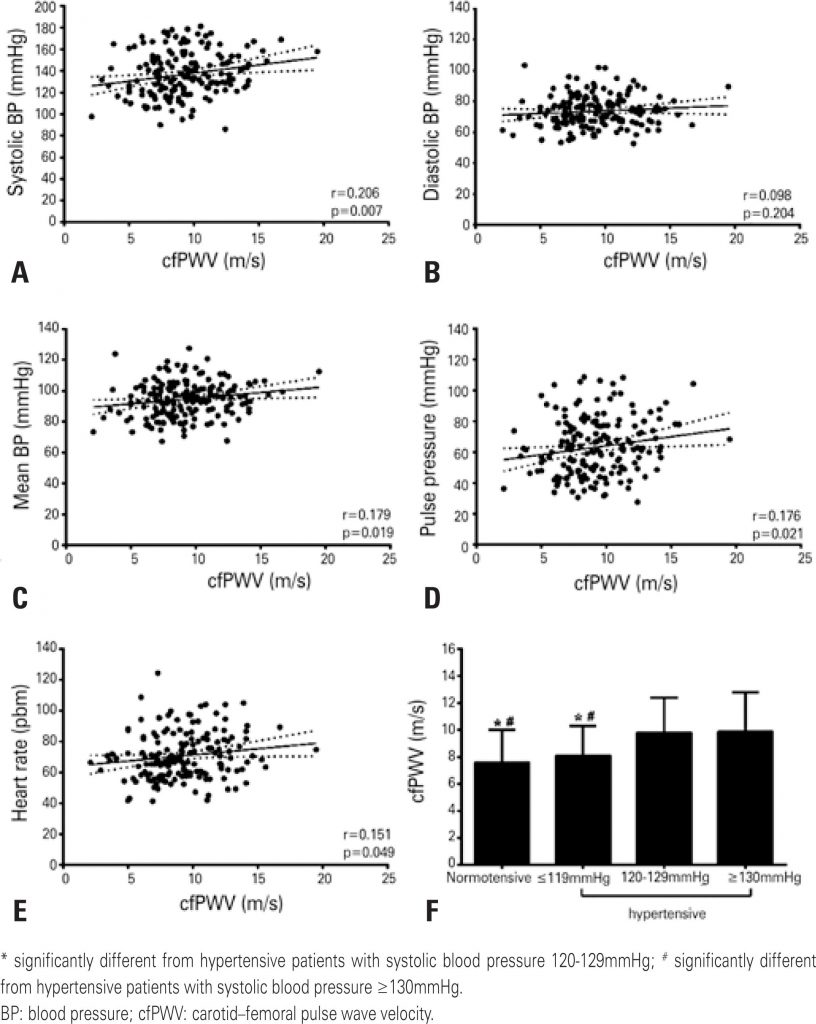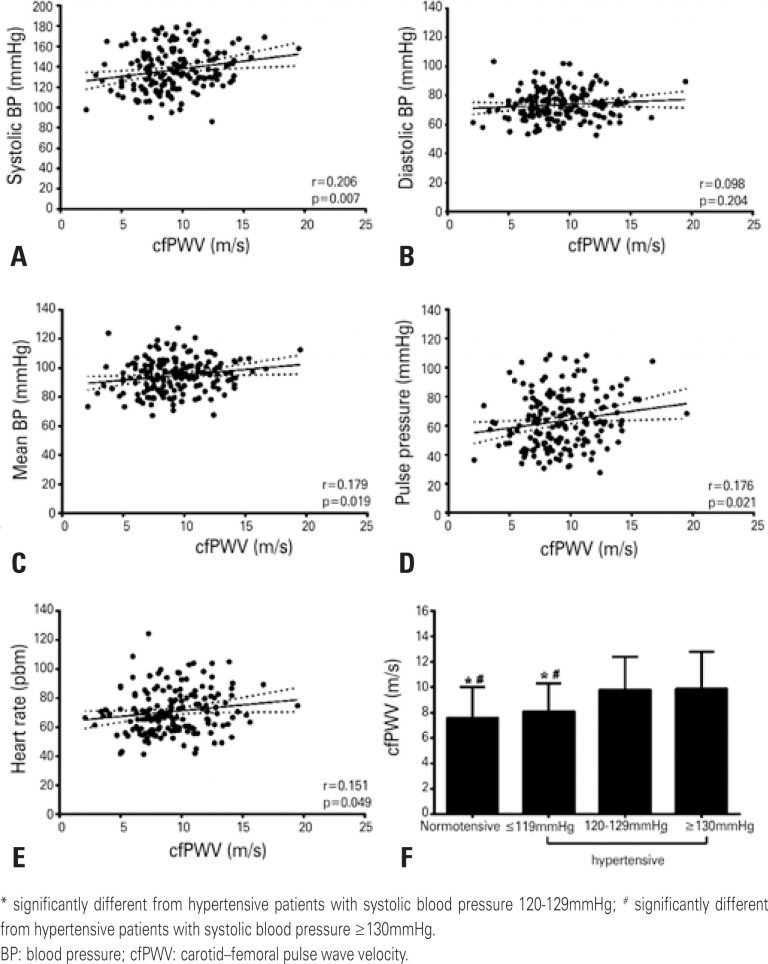einstein (São Paulo). 25/Nov/2021;19:eA06100.
Impact of hypertension on arterial stiffness and cardiac autonomic modulation in patients with peripheral artery disease: a cross-sectional study
DOI: 10.31744/einstein_journal/2021AO6100
ABSTRACT
Objective:
To examine the impact of hypertension on cardiovascular health in patients with symptomatic peripheral artery disease and to identify factors associated with uncontrolled hypertension.
Methods:
A cross-sectional study including 251 patients with symptomatic peripheral artery disease (63.9% males, mean age 67±10 years). Following hypertension diagnosis, blood pressure was measured to determine control of hypertension. Arterial stiffness (carotid-femoral pulse wave velocity) and cardiac autonomic modulation (sympathovagal balance) were assessed.
Results:
Hypertension was associated with higher carotid-femoral pulse wave velocity, regardless of sex, age, ankle-brachial index, body mass index, walking capacity, heart rate, or comorbidities (ß=2.59±0.76m/s, b=0.318, p=0.003). Patients with systolic blood pressure ≥120mmHg had higher carotid-femoral pulse wave velocity values than normotensive individuals, and hypertensive patients with systolic blood pressure of ≤119mmHg (normotensive: 7.6±2.4m/s=≤119mmHg: 8.1±2.2m/s 120-129mmHg:9.8±2.6m/s=≥130mmHg: 9.9±2.9m/s, p<0.005). Sympathovagal balance was not associated with hypertension (p>0.05).
Conclusion:
Hypertensive patients with symptomatic peripheral artery disease have increased arterial stiffness. Arterial stiffness is even greater in patients with uncontrolled high blood pressure.
588



